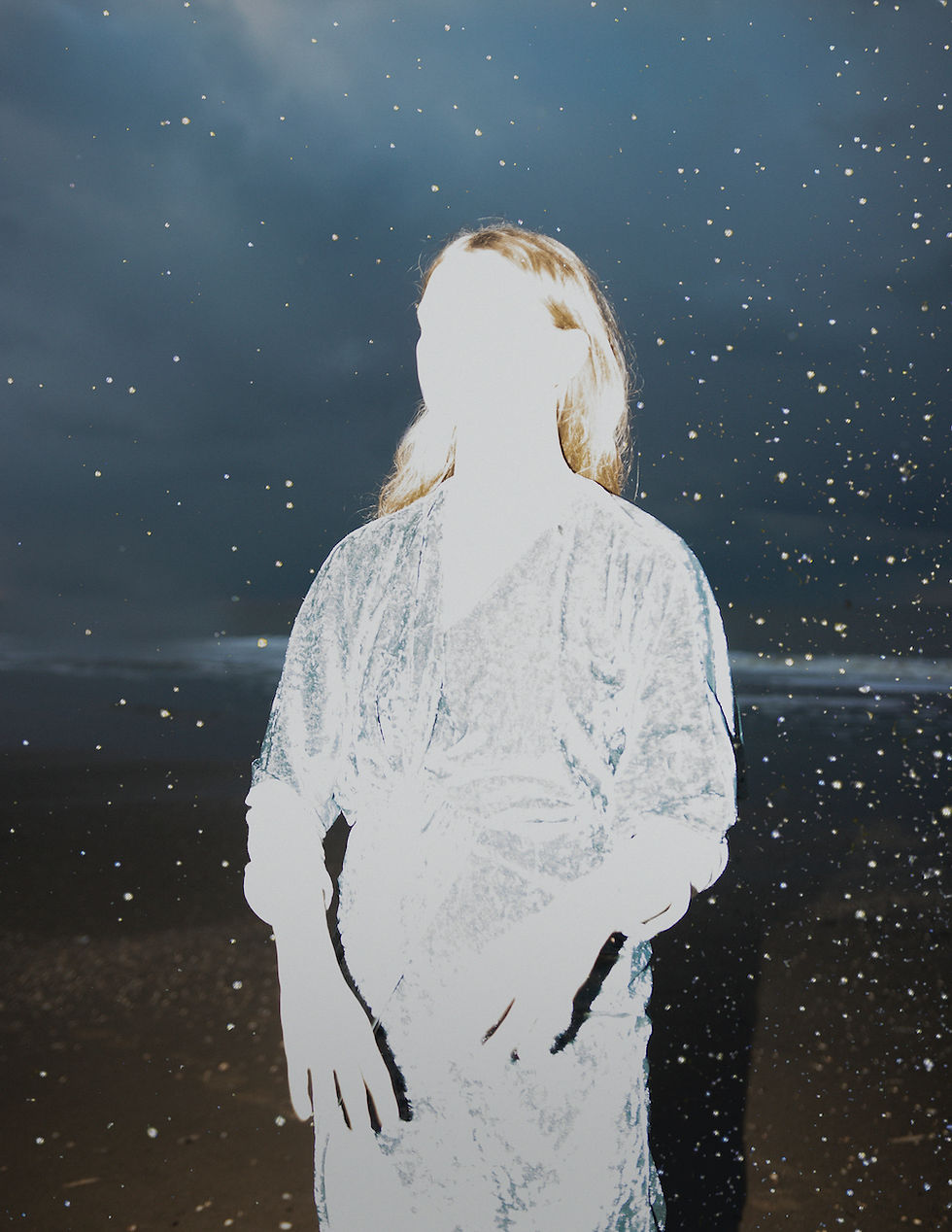Emilia Martin




"I looked up towards the stars ever since I remember. I am not an astronomer - while I can barely name a few constellations and sometimes I confuse satellites for the celestial bodies, stargazing brought me comfort whenever life felt too narrow and patriarchal systems I inhabited were too oppressive.
In times of capitalism and its symptomatic fetish of light, in “The blue of the far distance” I explore the act of stargazing as a tool of gentle emancipation, of accessing space that represents connectedness, belonging and wonder regardless of binary narratives in place, location or systems inhabited, a space that is safe and democratically accessible.
Ironically it was the light pollution and the absence of the starry night that initially made me wonder about stargazing, about what it means to me, what it means to us, as species to not see stars - the view that initially served as a reminder for the human kind about their common ancestry and connectedness.
These questions followed me while I visited amateur observatories where light pollution was too strong to see anything on the sky above, or hand crafted planetariums – some of them in impressive domes, some built in private living rooms, some built on farms, in sheds.
Inspired by the notion of hand crafted planetariums I wonder what does it mean to create a contained universe, a space of one’s own, on one’s own terms in the most literal sense.
“The blue of the far distance” is a hopeful speculation about the place of positive escape accessible and available, a constellation of stargazers, of darkness and surreal landscapes, of ancient orreries and universes in a human scales, a clash between mundane and sublime, a space that is a speculation, but can become a reality."
